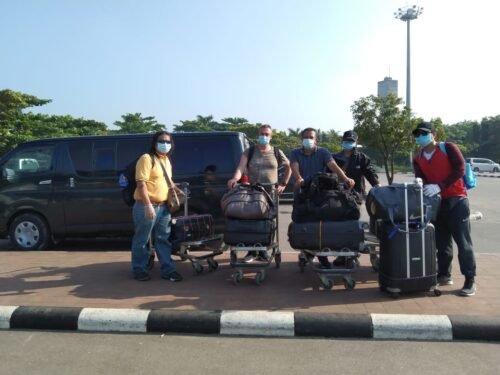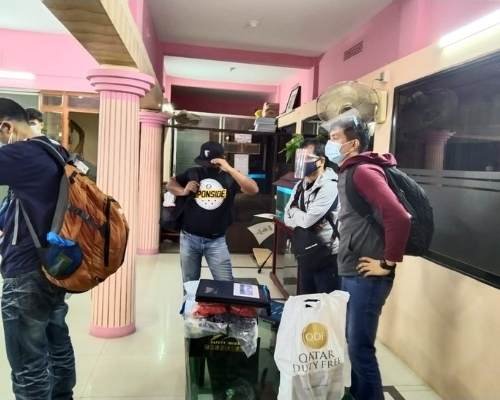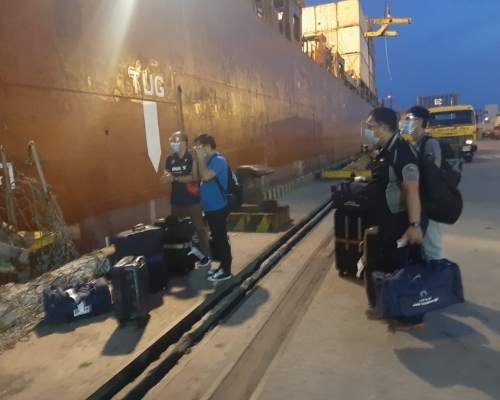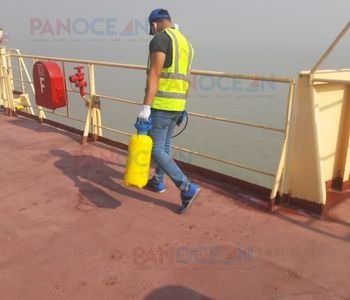Vessel fumigation is an integral aspect of maritime trade, ensuring that ships and their cargoes remain pest-free. For Bangladesh, a country with a burgeoning port infrastructure and growing maritime commerce, understanding the dynamics of vessel fumigation is vital to ensure smooth trade operations and protect native ecosystems. In this insightful blog, Panocean Ltd. endeavors to cast a spotlight on the essential nature of fumigation, the critical responsibilities of the vessel, and the invaluable role played by local fumigation contractors. Upholding its commitment to superior maritime operations, Panocean regularly addresses pest control within vessels—a task of paramount importance. The company wishes to emphasize several key points that merit constant attention in the realm of fumigation practices.
Bangladesh’s Maritime Landscape
Strategically located between South and Southeast Asia, Bangladesh has a rich maritime heritage. The country boasts significant ports like Chittagong and Mongla, through which many goods are imported and exported daily. As maritime activity intensifies, so does the need for comprehensive vessel fumigation.
The Importance of Vessel Fumigation in Bangladesh
- Safeguarding Ecosystems: Bangladesh, with its delicate mangrove ecosystems like the Sundarbans, cannot afford the inadvertent introduction of alien species that might destabilize local biodiversity. Proper vessel fumigation minimizes the risks associated with invasive species.
- Ensuring Uninterrupted Trade: The global trade landscape is intricate. Beyond the complexities of commerce and economics, there’s a silent player: phytosanitary standards. A ship, no matter how laden with valuable cargo, can face rejections at destination ports if found infested with pests. Such setbacks are not just financial; they can dent trade relations and a country’s reputation. For Bangladesh, a nation with ambitious trade aspirations, vessel fumigation is the key. It ensures that ships align with international phytosanitary norms, paving the way for smooth trade operations and bolstering Bangladesh’s image as a reliable trade partner.
- Protecting Port Infrastructure: Imagine the bustling activities of a port coming to a grinding halt because of a pest outbreak. The repercussions—economic losses, disrupted supply chains, and operational chaos—are daunting. Ports are the lifeblood of maritime trade, and their smooth functioning is non-negotiable. Regular vessel fumigation is akin to an insurance policy for Bangladeshi ports. It ensures that these critical hubs remain pest-free, ensuring uninterrupted operations and, by extension, a steady flow of trade and commerce.
The Imperative of Careful Fumigation in Vessels
When it comes to fumigation aboard marine vessels, the stakes are incredibly high. Not only must the process be effective in pest control, but it must also safeguard human health, the marine environment, and the integrity of the ship’s cargo. The complexities involved in fumigating within the confined and often inaccessible spaces of a ship require expertise, precision, and cooperation between the fumigation company and the vessel’s master.
The Role of the Fumigation Company
A fumigation company is tasked with delivering pest control solutions that are tailored to the unique environment of a vessel. They need to consider several factors with extreme care:
- Risk Assessment: Before any fumigation takes place, a thorough risk assessment must be conducted to identify the safest method of application, considering the type of vessel, cargo, and the current positioning.
- Choice of Fumigants: Selecting appropriate fumigants is crucial. The chosen fumigant must be effective against the targeted pests without damaging the cargo or the ship’s equipment.
- Correct Dosing: Dosages must be accurate to ensure the effectiveness of the fumigation process while minimizing toxicity risks to non-target species, including humans.
- Seal Integrity: Ensuring that the area to be fumigated is properly sealed to prevent any escape of fumigants into living areas or the environment is vital.
- Safety Procedures: Detailed safety procedures, including the use of Personal Protective Equipment (PPE), safe handling, and application techniques, must be adhered to rigorously.
- Communication: Clear and constant communication with the ship’s crew about safety zones, re-entry times, and procedures in case of emergencies.
- Post-Fumigation Ventilation: After fumigation, adequate ventilation to remove toxic gases before re-entry is critically important to prevent intoxication.
- Disposal: Proper disposal of fumigation materials according to environmental regulations and standards is non-negotiable to avoid marine pollution.
The Vessel Master’s Responsibility
The vessel master has a parallel set of responsibilities that must align with the fumigation company’s actions.
- Cooperation: Providing full cooperation and accurate information about the ship’s structure, previous pest control measures, and the nature of the cargo.
- Crew Safety: The master must prioritize crew safety by informing and training them about the fumigation hazards and emergency procedures.
- Monitoring: Supervising the sealing and application process, ensuring that no unauthorized personnel enter the treated areas, and monitoring fumigant concentrations.
- Record Keeping: Keeping detailed records of the fumigation process, including substances used, concentrations, exposure times, and safety measures.
- Emergency Readiness: Preparing for potential emergencies, such as leaks or accidental exposures, with ready access to first aid and medical support.
Collaborative Efforts for Safe Fumigation
The process of fumigation in a vessel is one that cannot afford missteps. The collaboration between the fumigation company and the vessel master should involve:
- Pre-fumigation Meeting: Before any fumigation procedure begins, a meeting to coordinate actions and review the fumigation plan is essential.
- Joint Inspections: Conducting joint inspections pre and post-fumigation ensures that the process adheres to the agreed-upon safety and effectiveness standards.
- Documentation: All fumigation activities should be documented thoroughly by both parties, creating an audit trail that can be referenced in case of any disputes or health issues arising post-fumigation.
Conclusion
As Bangladesh continues its journey to becoming a pivotal player in maritime trade, the significance of vessel fumigation cannot be understated. It is a testament to the country’s commitment to safe, sustainable, and responsible trade. With continued emphasis on modernization and training, Bangladesh is well on its way to setting a gold standard in vessel fumigation practices.









